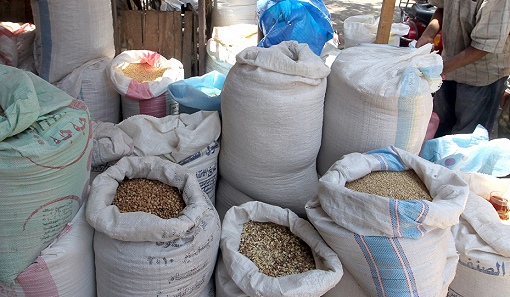
 Egypt’s new government is preparing to swear in. It is expected that this will happen within one or two days. According to interim Prime Minister Hazen al-Beblawy, one of the key tasks of the new government is the revival of the economy. At present, the country is on the brink of a food disaster.
Egypt’s new government is preparing to swear in. It is expected that this will happen within one or two days. According to interim Prime Minister Hazen al-Beblawy, one of the key tasks of the new government is the revival of the economy. At present, the country is on the brink of a food disaster.The Arab countries have volunteered to support Egypt and are ready to provide $12 billion as financial aid. In fact, this sum will be sufficient only for the transition period.
Turmoil in Egypt has continued even after former President Morsi was ousted. A threat of an economic collapse is growing on a background against a political crisis. Since the "Arab Spring” the country’s economy has rapidly fallen. Until 2010, Egypt’s GDP grew 5-7% a year, while at present, it is falling 7% a month.
Every one fourth Egyptian lives below the poverty line, while only 300,000 jobs are available for every one million able-bodied citizens. The instable political situation has severely affected the tourist industry, one of the main sources of income. As a result, the country’s hard currency reserves have fallen down to $13 billion.
In fact, Egypt mainly imports food products, and Egyptians are paying for their food in hard currency. Here is an opinion from Professor Vladimir Isaev at the Institute of Asian And African Countries at Moscow State University.
"The typical food of the majority of people, who live in poor conditions, is flatbread and potato a day. In Egypt basic food items are subsidized by the government. This concerns grain flour, tea and coffee. People stand in long queues when subsidized flour or flatbread is issued,” Vladimir Isaev said.
The ousted President also tried to solve economic problems. He made attempts to get $30 billion foreign credits, but ran out of time. At present, Saudi Arabia, Kuwait and the United Arab Emirates have offered $12 billion-financial package that includes interest-free loans, as well as non-repayable financial aid and free-of-charge oil. Egypt expects another $1.5 billion from the US However, the US Congress has not taken a decision yet.
If it considers that the President was illegally ousted, then the Egyptians will not see this money. Proceeding from the fact that the country will have to pay off the debt sooner or later, the new Egyptian leaders have rejected a 5 billion loan from the IMF although the country has held two-year talks.
However, Egypt expects support from Russia. Moscow has said it is ready to hold a dialogue, if the Egyptian authorities officially contact Russia. The best thing that Russia can offer is food rather than money, says chief fellow at the Institute of the World Economy and International Relations,Alexander Gusev.
"Most likely, Egypt will request Russia to supply one million tons of grain as humanitarian aid since the country is experiencing a food shortage that is worsened by a drought. Russia has always been an important trade partner of Egypt. Russia has never denied financial aid. In view of this, it will be more pleasant for Egypt to work with Russia than the IMF,” Alexander Gusev said.
The foreign financial aid to Egypt will deal a severe blow on the Muslim Brotherhood. Experts say that the Islamist organization is now losing its positions. In any case, the existing revolutionary sentiment has worsened the situation, Alexander Gusev said.
"At present, it is crucial to achieve political stability because people are rallying, going on strikes or do not go to work. The agriculture sector has declined in the past three years. Understandably, in these circumstances tourists have no desire to visit Egypt. As a result, profits from the tourist industry have fallen,” Alexander Gusev added.



_jpg/250px-ElbeDay1945_(NARA_ww2-121).jpg)





